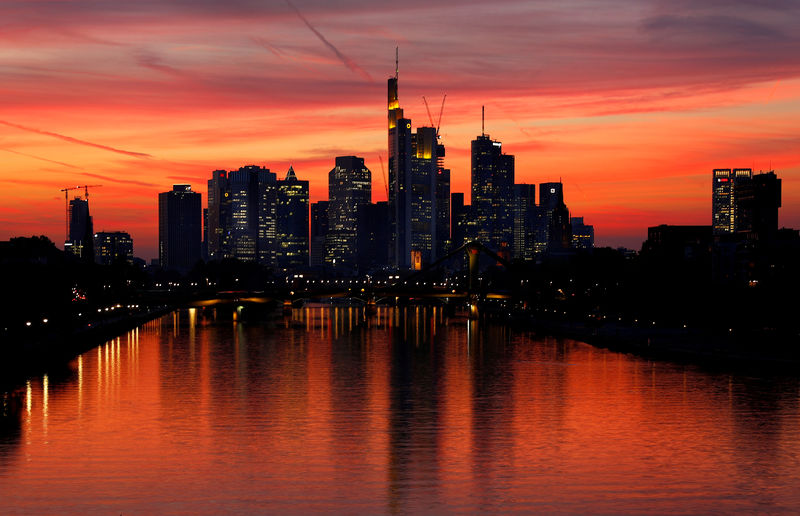By Michael Nienaber
BERLIN (Reuters) - German business sentiment deteriorated more than expected in August to hit its lowest in nearly seven years, a survey showed on Monday, in a further sign that escalating trade disputes are pushing Europe's largest economy towards a recession.
The country's manufacturers - whose exports have been a bedrock of German economic strength - are now struggling with weaker foreign demand, tariff disputes sparked by U.S. President Donald Trump's 'America First' policies and business uncertainty linked to Britain's decision to leave the European Union.
"German companies have to buckle up in the coming quarters. As bitter as it sounds, the export dependence of the German economy is currently becoming a boomerang," said VP Bank analyst Thomas Gitzel.
The automobile sector, an important driver of overall growth, is also having trouble adjusting to stricter regulation following an emission cheating scandal and managing a broader shift away from combustion engines towards electric cars.
The Munich-based Ifo institute said its business climate index fell to 94.3 from an upwardly revised 95.8 in July. The August reading, the fifth monthly decline in a row, undershot a consensus forecast for 95.1.
"There are ever more indications of a recession in Germany," Ifo President Clemens Fuest said in a statement. Companies were much less satisfied with their current situation and their pessimism about the coming months also increased, he added.
"The last time that industrial companies demonstrated such pessimism was in the crisis year of 2009. Not a single ray of light was to be seen in any of Germany's key industries."
Business morale deteriorated also in services, wholesaling and construction. This suggests that so far robust domestic demand is now also losing momentum and that the manufacturing recession is creeping into other sectors of the economy.
CONTRACTION
The Ifo survey followed Markit's survey of purchasing managers released on Thursday that showed Germany's private sector continued to struggle in August as the manufacturing recession dragged on and activity in the services sector eased slightly.
The German economy contracted 0.1% in the April-June period due to a plunge in exports and it could have continued to shrink over the summer, according to the Bundesbank, as industrial production is falling amid a lack of orders.
"There will be a stagnation in the third quarter at best," Ifo economist Klaus Wohlrabe told Reuters. "We are facing a recession."
Most economists describe a period of at least two consecutive quarters of economic contraction as a technical recession.
For 2019 as a whole, the government predicts meagre growth of 0.5% this year. Berlin expects a consumption-driven rebound in economic expansion of 1.5% for 2020.
The unexpectedly weak Ifo figures are likely to increase calls for the government to inject more fiscal stimulus into the economy.
German Finance Minister Olaf Scholz said on Sunday the government needed to take "decisive steps" to tackle climate change and that new measures also could result in a stimulus to the economy.

His remarks came ahead of a series of high-level coalition meetings next month aimed at preparing a far-reaching package of climate protection measures that are expected to massively weigh on Germany's federal budget.